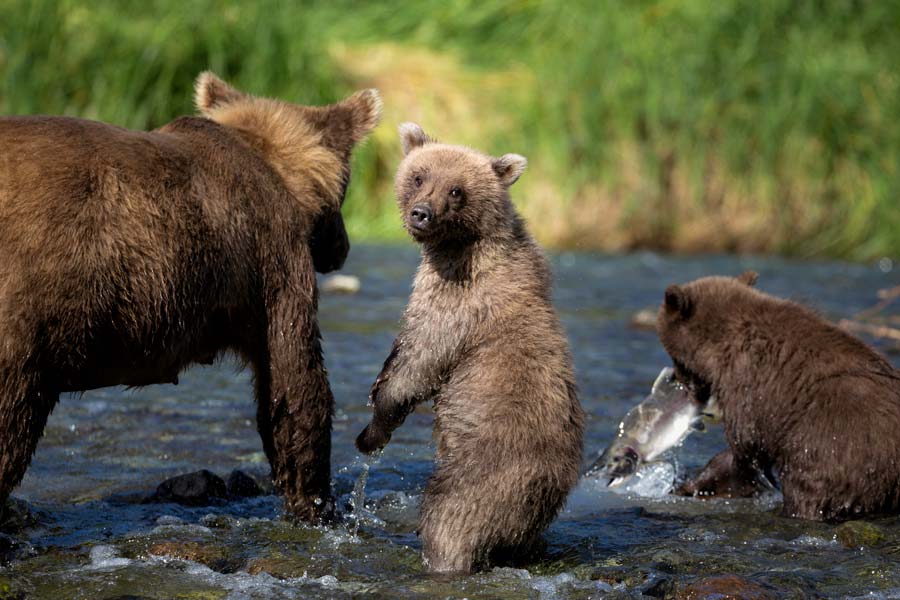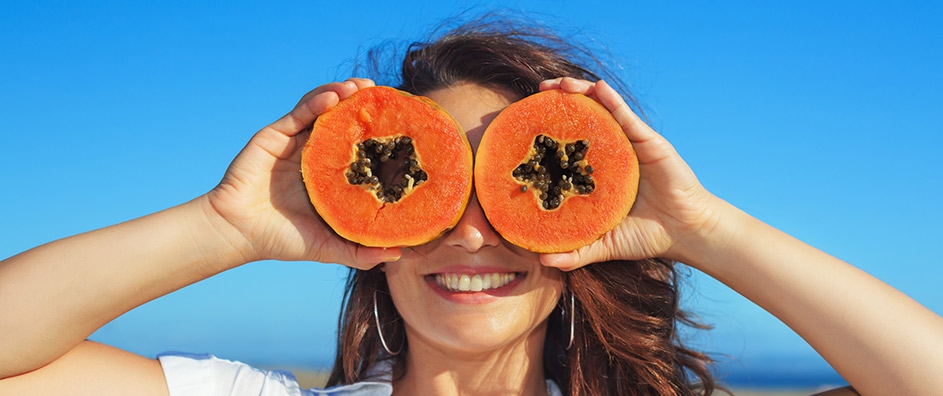The views expressed in our content reflect individual perspectives and do not represent the authoritative views of the Baha'i Faith.
Climate change is a really hot topic these days, and for good reason. Without a Planet B, we risk depleting this one and endangering our entire species.
That means many of us are trying to find the best way to take care of this Earth, while still nourishing ourselves and our families. We have concerns about our impact on the environment—nutritionally, environmentally, ethically and globally.
One of the primary changes occurring globally in response to this issue is changing diets to be more “plant-based” or vegetarian. In fact, the Baha’i writings mention the potential benefits of a vegetarian diet:
Truly, the killing of animals and the eating of their meat is somewhat contrary to pity and compassion, and if one can content oneself with cereals, fruit, oil and nuts, such as pistachios, almonds and so on, it would undoubtedly be better and more pleasing. – Abdu’l-Baha, from a letter written to an individual Baha’i.
Having been a vegetarian for about seven years now, I dealt with many internal dilemmas as to how I could best care for my body and our Earth concurrently. I struggled to make sense of the fact that, though I was following what I understood to be a healthy diet, I was exhausted, sick, depressed and lacked mental clarity. I needed to eat at least every two hours, since meals of grains and beans were never filling enough for me. Previously being very active in my Baha’i community’s activities, at the peak of my illness, I had to take a two-year break because anytime I wasn’t in class, I was sleeping or eating.
The Baha’i teachings tell us that good health and longevity are essential to serving humanity. Then why shouldn’t I strive to have optimal health, even if I might have to consider going against my dietary beliefs?
When I look back at it now, I realize that changing my diet to one that includes nutrient-dense, ethically and sustainably-raised animals was actually not against my beliefs at all. Then and now, I strived the best way I knew how to live in alignment with nature’s laws:
Meat is nourishing and containeth the elements of herbs, seeds and fruits; therefore, sometimes it is essential for the sick and for the rehabilitation of health. – Abdu’l-Baha, from a tablet to an individual.
After learning about how we absorb various nutrients in my nutritional biochemistry classes, I noticed there was a consistency: plants and animals contain similar nutrients, however, the nutrients that exist in plant form have many more barriers to absorption and utilization than nutrients coming from animal sources in their active forms.
Soon after changing my diet, I came across this quote from Abdu’l-Baha, and after much meditation and reflection, I was encouraged that this view of nature’s circle of life is the perspective that I should strive to live in alignment with:
Reflect upon the inner realities of the universe, the secret wisdoms involved, the enigmas, the inter-relationships, the rules that govern all … In the physical realm of creation, all things are eaters and eaten: the plant drinketh in the mineral, the animal doth crop and swallow down the plant, man doth feed upon the animal, and the mineral devoureth the body of man. Physical bodies are transferred past one barrier after another, from one life to another, and all things are subject to transformation and change, save only the essence of existence itself—since it is constant and immutable, and upon it is founded the life of every species and kind, of every contingent reality throughout the whole of creation.
Whensoever thou dost examine, through a microscope, the water man drinketh, the air he doth breathe, thou wilt see that with every breath of air, man taketh in an abundance of animal life, and with every draught of water, he also swalloweth down a great variety of animals. How could it ever be possible to put a stop to this process? For all creatures are eaters and eaten, and the very fabric of life is reared upon this fact. Were it not so, the ties that interlace all created things within the universe would be unraveled. – Abdu’l-Baha, Selections from the Writings of Abdu’l-Baha, p. 157.
This quote helped me to understand my own health journey and that of my patients. The ties that interlaced my being became unraveled when my body came to a point where it could no longer function as it needed to. Through reintroducing meats to my diet, I was able to restore my body to balance, now having the energy, vitality, and mental space necessary to serve my community.
It is clear that if we wish to improve the state of our environment, we have to consider the sustainability of our every action. How is our food raised, fed, distributed, prepared, and processed? Are we eating only plants that were grown in a monocrop agricultural system which in itself requires all of the “-cides” to survive? The use of pesticides, herbicides, insecticides, etc. are only necessary because of the lack of diversity existing in the ecosystem.
… Diversity of hues, form and shape, enricheth and adorneth the garden, and heighteneth the effect thereof … – Ibid., p. 291.
In nature, there is biodiversity: plants, animals, insects, fungi and microbes all work together to build a healthy ecosystem. So, are we trading the lives of animals for the life of our environment? I understand I’m asking some difficult questions that we might not have all of the answers to, but I think they deserve some consideration.

I believe we can nourish our ecosystems while nourishing humanity. This solution is currently in process, specifically through sustainable management of grasslands. But we cannot wholly address this issue unless we consider the spiritual component: How can we live in a way that we have the wellness required to serve others, but live minimally enough that we don’t use more than what we need?
I challenge each of you to begin changing one habit you might have as it relates to sustainability. Perhaps if you choose to eat animals, try using other parts of the animal that was already killed for food. If you choose to eat only plants, I urge you to obtain your nourishment from plants grown in a sustainable manner.
My hope is that my personal, professional and spiritual experience can help those of you questioning your current dietary practices. I always find that observing nature can help us answer our questions.
You May Also Like
Comments

















While I see younger people and Baha'is making a more definitive move to a plant-based lifestyle, I definitely feel older Baha'is making a more gradual transition to vegetarian and vegan practices as well. I don't believe in condemning folks for their centuries-old habits, including hunting and fishing, but at the very least I believe a plant-based alternative should be provided ...at Baha'i events and an acknowledgment that this is recommended by the Master.
Since this article was not intended to explore the science behind the nutritional benefits of animal foods, I didn't include that information (the word count max wouldn't allow for it). It was simply to provide an alternative view for those who have read the Writings of 'Abdu'l-Baha and feel the dilemma of needing to include animal foods for health reasons.